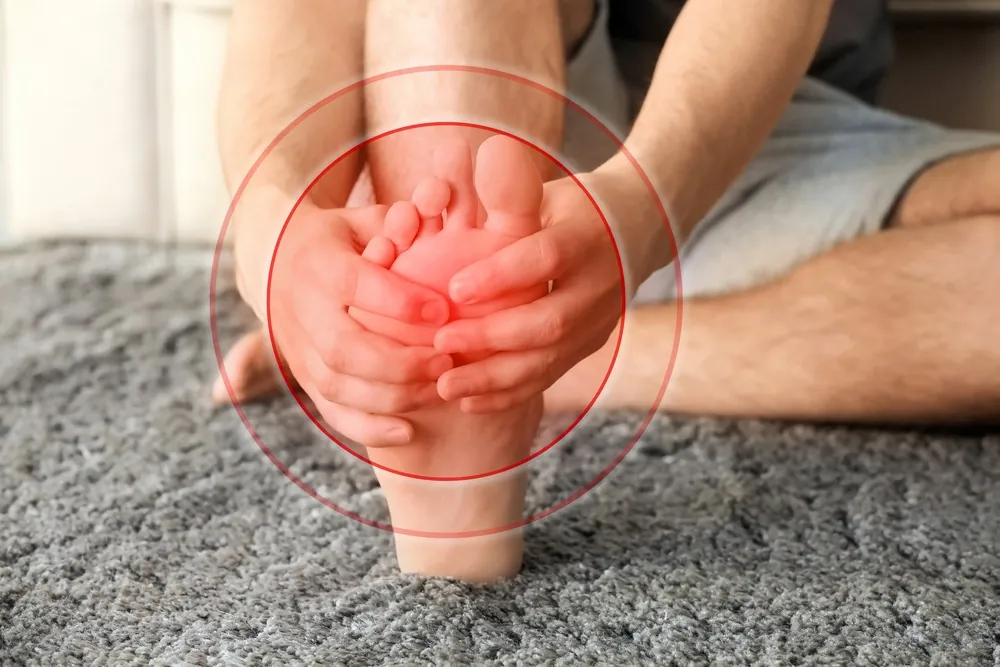Do you ever get a pain in the foot that makes you feel like you have needles or pebbles in your shoes? If so, you may have metatarsalgia.
This is what we call the pain in the area of the foot sole, between the arch of the foot and the toes. If you have metatarsalgia, you may experience pain in a very localized area or on your entire forefoot.
Symptoms
Metatarsalgia is basically caused by inflammation. Often, the patient who suffers will feel that their socks are always bunched up at the base of the toes. Sometimes they will even feel like they are walking with a pebble or needles in their shoe.
- Burning sensation at the front of the foot
- Swelling of the front part of the foot
- Swelling on the front and top of feet
- Calluses on the front part of the feet
- Difficulty crouching down on bent toes
- Twinge in the foot phalanges
Causes
Metatarsalgia can be caused by a number of different conditions. It can be a podiatric issue, a sports wound to the foot, repetitive movement, etc. Below are some of the factors that podiatrists see the most often.
- Wearing inappropriate shoes (forefoot too narrow, ill-fitting, heels that are too high, lack of absorption in the sole or unsupportive)
- Having flat feet
- Limited flexibility in the ankle due to the Achilles tendon being too short
- Having an issue with hammer toes or claw toe
- Suffering from hallux abductos valgus (bunions)
- Rapid and excessive weight gain
- Excessive and hurried practice of impact sports (running, walking, etc.)
Preventing metatarsalgia
Metatarsalgia cannot always be prevented. However, when you choose to wear proper footwear, you are taking a step in the right direction.
Here are a few guidelines to help you purchase a good pair of shoes:
- Wide shoe (lots of space for the foot)
- Low heels
- Well-made and firm shoes
- Avoid high heels and narrow shoes. As with the prevention of neuroma, it will help your foot to avoid any unnecessary pressure.
Podiatrist care
It’s always a good idea to consult a podiatrist. Your podiatrist can suggest various treatments depending on your situation. Below are some of the podiatric treatments that are effective against metatarsalgia.
- Taking anti-inflammatories (e.g., Advil or Motrin) or painkillers (e.g., Atasol or Aspirin)
- Using therapeutic bandages in your shoes to support your feet and isolate excessive pressure
- Prescription for custom plantar orthotics with a metatarsal cushion
- Cortisone injection
In some chronic cases, the podiatrist may prescribe therapeutic boots or surgery to treat the patient.

